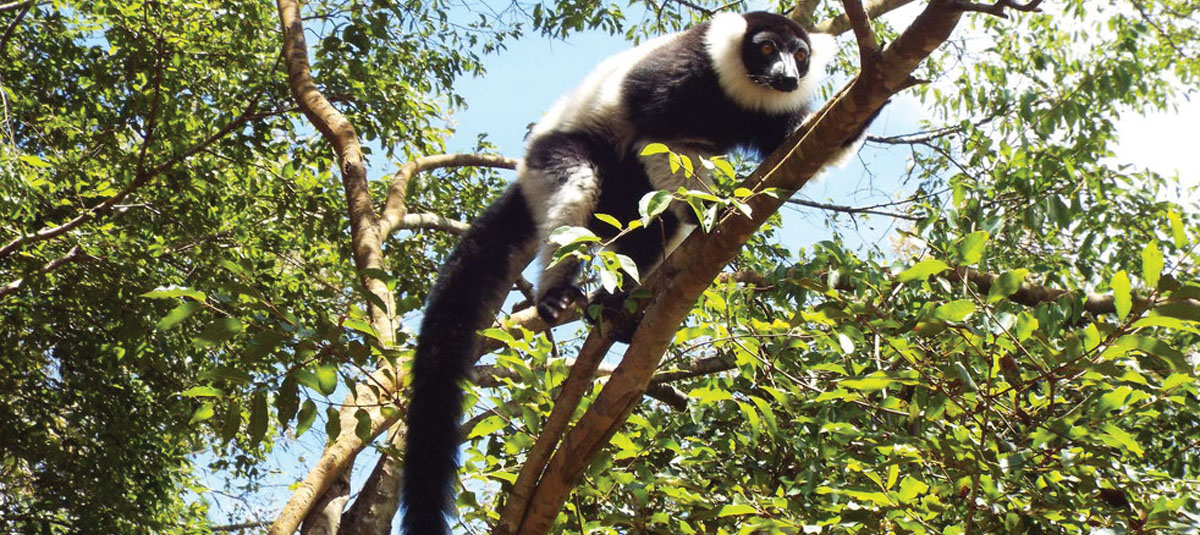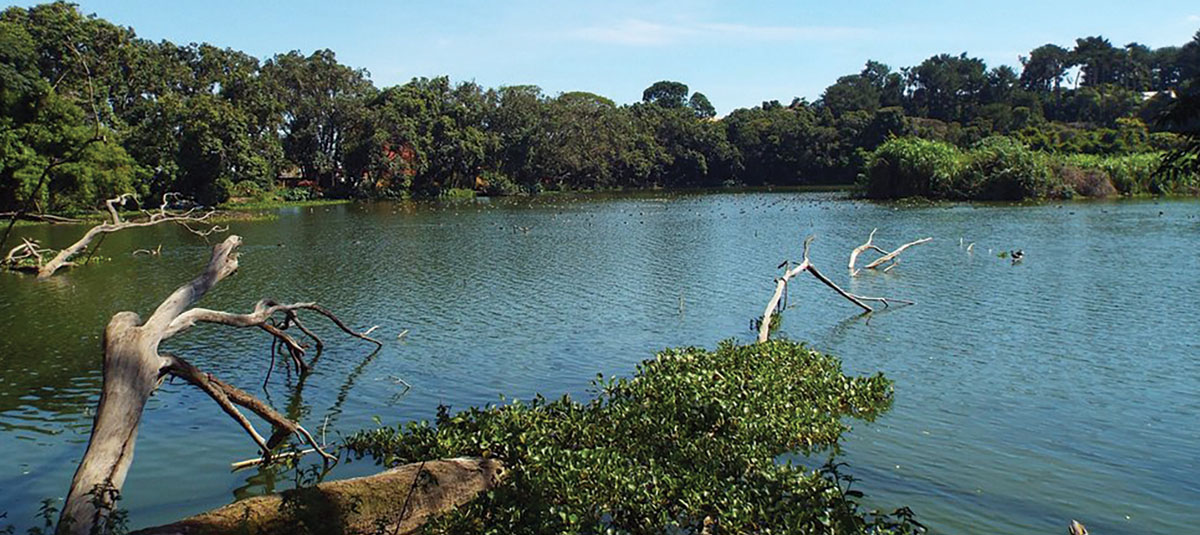Blogging Madagascar
Finding Casey Woodling in front of a classroom is not hard to do, but finding him on this side of the prime meridian might be. Woodling, CCU lecturer of philosophy and religious studies, introduces students to life’s big questions and encourages them to wrestle with answers, but his students are not only at CCU.
 Woodling continues to forward his interest in Malagasy - the people, places and culture of Madagascar - by teaching abroad. He served as a Peace Corps volunteer in the country from 2007-09 and returned to the University of Antananarivo, in the nation’s capital, as a Fulbright scholar from November 2016 to July 2017. In addition to teaching American studies and American literature, Woodling is researching the history of philosophy in Madagascar and how the general worldview of the Malagasy people relates to happiness and the good life.
Woodling continues to forward his interest in Malagasy - the people, places and culture of Madagascar - by teaching abroad. He served as a Peace Corps volunteer in the country from 2007-09 and returned to the University of Antananarivo, in the nation’s capital, as a Fulbright scholar from November 2016 to July 2017. In addition to teaching American studies and American literature, Woodling is researching the history of philosophy in Madagascar and how the general worldview of the Malagasy people relates to happiness and the good life.
Woodling decided to try his hand at blogging during his time spent away from CCU.
“I knew that there would be unique experiences to the Fulbright, and I wanted to share those with people in the States,” says Woodling. “I also wanted to share Malagasy culture with people, and the blog is a great way to do that. Additionally, I wanted to use it as a chance to work out some of my ideas for research and also to reflect on my teaching.”
The following excerpts are from Woodling’s blog, where he speaks of the value of teaching and the importance of resilience for a people and its culture.
See more at www.caseywoodling.com/blog.
2.7.17
I know for certain that I learned valuable lessons from my Malagasy friends about perseverance and flexibility. Seeing people work together to achieve something without giving up hope when they routinely face difficulties before them teaches you some things. For all of us, it’s true that you never know quite how things will turn out, so it’s good to keep working at it, remain positive and hope for the best. If you are with some other people who feel that in their hearts, then you are in good company. And if you fail, at least you fail with good friends. If you succeed, then all the better.
3.20.17

The Fulbright is in some ways similar to the Peace Corps in its focus on improving the mutual understanding between cultures and on exchanging skills and knowledge between cultures. I am incredibly fortunate to have gotten the chance to come back to work here again, to see friends, to enjoy life in Madagascar again, and to push my teaching and research to new levels. I try to remain conscious of just how lucky I am to have gotten both of these opportunities and to take advantage of the present one to my fullest potential...The opportunity is once-in-a-lifetime. I realize that. I work in light of this realization, and it drives me forward.
4.5.17
I have to say that my favorite thing about teaching is being in front of students and working with them. It seems like a cliché, but one of the best feelings as a teacher is having a real conversation with students who are interested in something that interests you...there are moments for me in teaching when a big philosophical idea is truly considered, explored from different angles, and really engaged with-moments when the truth is fully sought. Those moments do not feel like work. Those moments feel like the opposite of work. They are moments in which I can’t hold back my smile for the joy. They don’t happen every day, but when they do, you savor them. They feed you. They lift you. They power you on.
4.17.17

Perhaps one of the greatest fears for a people is losing the memory or knowledge of their cultural values. If cities burn, they can be rebuilt from blueprints or from memory. Completely supplanting the Malagasy mind with the Western mind burns not just the city, but it burns the blueprints themselves. That is a scary thought for anyone who has been touched by the spirit of the Malagasy people, for anyone who has experienced various fomba ‘gasy (Malagasy way of doing things), or for anyone who has grown up in the culture and has internalized the values...such a loss would be horrific and ought to be fought against with all one’s will and power.
By Chelsea Thomas
Photos by Casey Woodling


